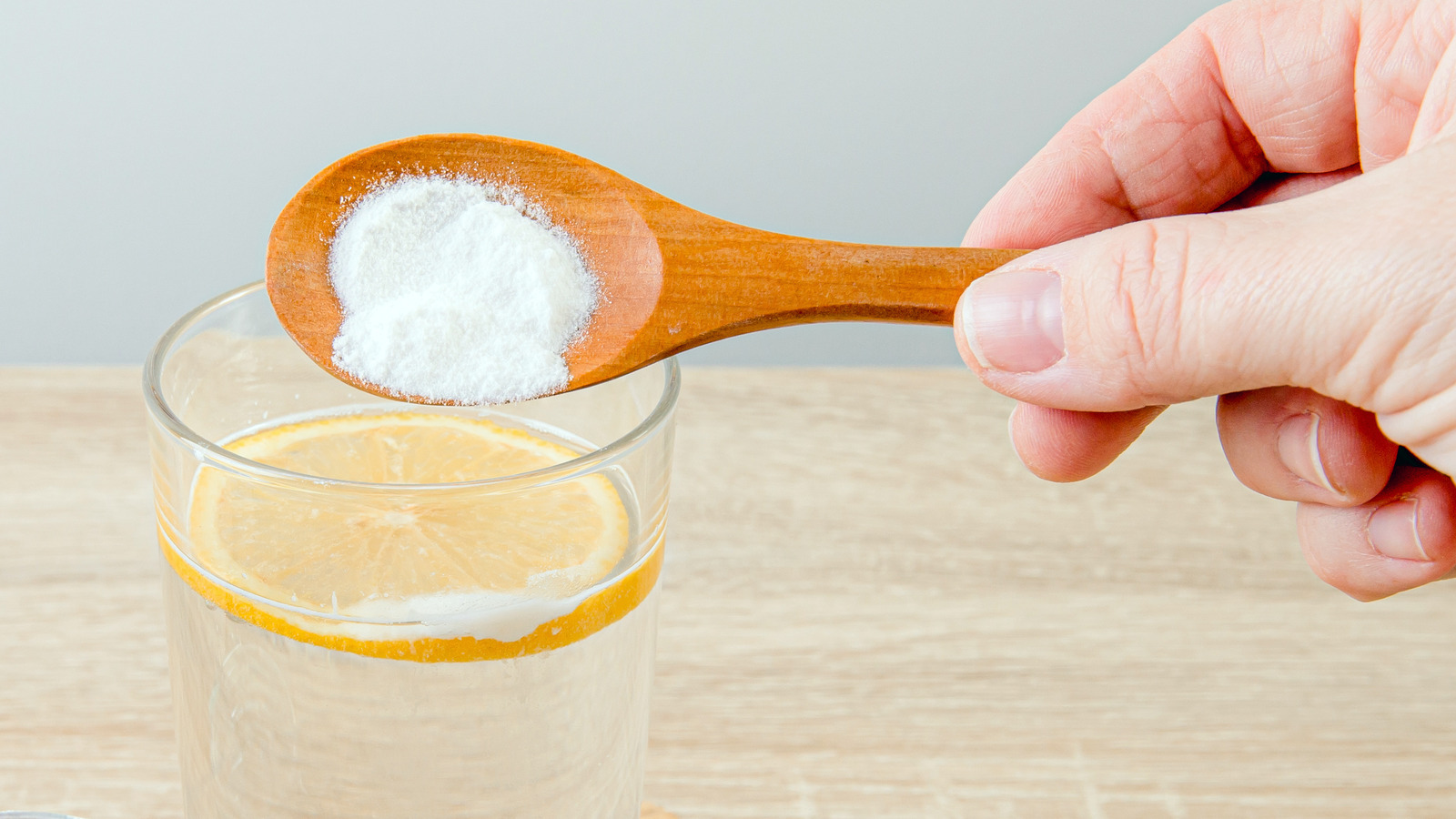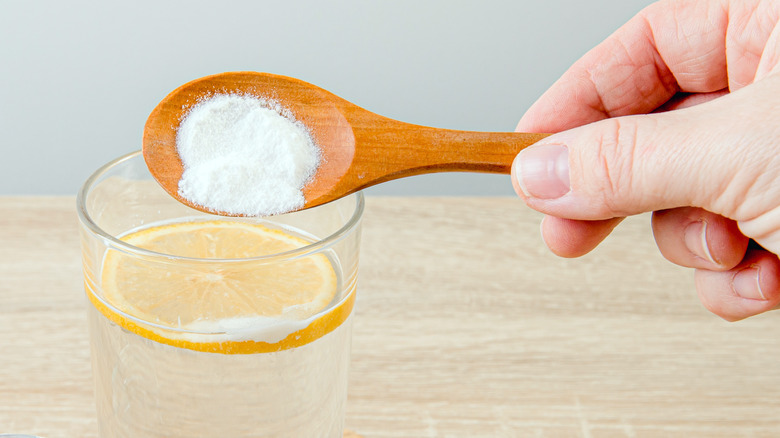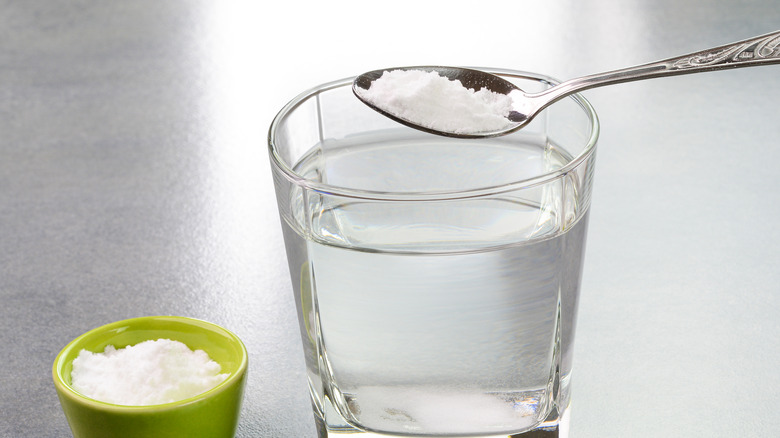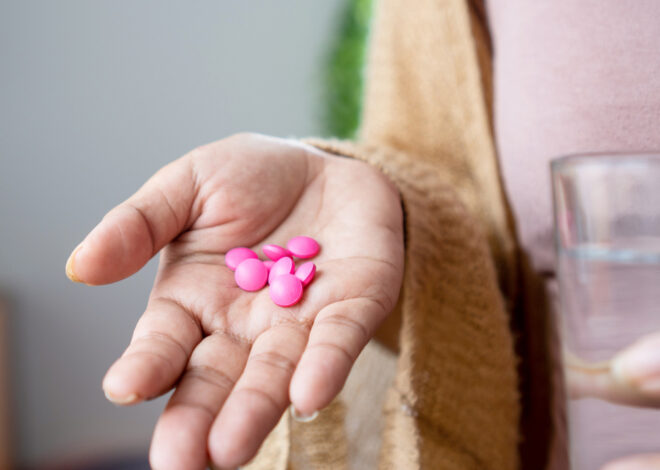
Here’s Why You Shouldn’t Believe Baking Soda Can Help Prevent Cancer – Health Digest
A box of baking soda is probably a common staple in your house. A dash of baking soda provides some of the fluff to your baking recipes, and an opened box of baking soda keeps out some of the stink in your refrigerator. In addition, baking soda has some surprising uses, like as a deodorant or teeth whitener.
Some people use baking soda for health purposes, believing it can help prevent cancer. Baking soda has a pH of 8, which makes it alkaline. Dr. Amy Lee, Head of Nutrition for Nucific, explains the logic behind baking soda’s possible healing properties. “Cancer cells thrive in acidic environments, and it is believed that changing the pH [of the environment] by the use of baking soda could slow or prevent further growth,” she said.
Even though it might sound logical to create an alkaline environment to reduce cancer, this logic doesn’t translate into scientific evidence. “There is currently no convincing evidence that it helps in humans, though there are many small clinical trials with the use of animals that have shown some correlation,” Lee said.
Baking soda can work with chemotherapy
Cancer cells create an acidic condition in those areas of your body, and this causes the cancer to continue proliferating. In animal studies, baking soda slowed the growth of tumors and improved the immune system but didn’t kill the cancer cells, according to a 2020 review in Integrative Cancer Therapies. One man with advanced kidney cancer stopped his conventional cancer treatments and opted to take vitamins, supplements, and 60 grams of baking soda every day. His tumor remained stable for 10 months. However, baking soda alone isn’t effective for all types of cancer, and there is a risk of dying of cancer without traditional cancer treatments.
That doesn’t mean that baking soda can’t assist with traditional cancer treatments. When chemotherapy targets the cancer, the acidic environment surrounding the cancer cells makes it difficult for the treatment to break through this acidity. Some cancer treatments also create an acidic environment, which is why baking soda added to the cancer treatment can be more effective. Some studies have tried having people dissolve baking soda in water to make the body more alkaline, but there’s a risk of indigestion or kidney problems. Researchers are looking into injecting a baking soda solution directly into the tumor itself.
Reducing your body’s acidity doesn’t prevent cancer
It’s not exactly true that cancer starts in an acidic environment. Otherwise, your chances of getting stomach cancer would be astoundingly high, since your stomach is naturally acidic (per Healthline). Instead, cancer cells create an acidic environment when they feed on glucose to survive. Cancer cells also need oxygen, and when they’re depleted of oxygen, they rely on fermentation to survive. According to a 2024 review in Biology, this creates more acidity in the body, making the tumors more aggressive while also killing healthy cells.
It’s not just baking soda that can reduce the acidity around cancer cells. Proton pump inhibitors (PPIs), which are typically taken to treat acid reflux, have also been tested as an adjunct to chemotherapy. A 2022 study in Cancers found that people who took PPIs along with their chemotherapy had better overall survival of esophageal cancer. High intermittent doses of esomeprazole combined with chemotherapy had better responses to their treatment for breast cancer, per a 2015 study in the Journal of Experimental and Clinical Cancer Research. However, a 2022 review in the American Journal of Clinical Oncology found that PPIs can increase your risk of gastric cancer, pancreatic cancer, colorectal cancer, and liver cancer.
It’s important to stress that taking baking soda or a PPI won’t prevent cancer. You can increase the alkalinity of your body naturally by consuming more fruits, vegetables, nuts, seeds, and lentils. These same foods also contain phytochemicals that reduce your risk of cancer.





